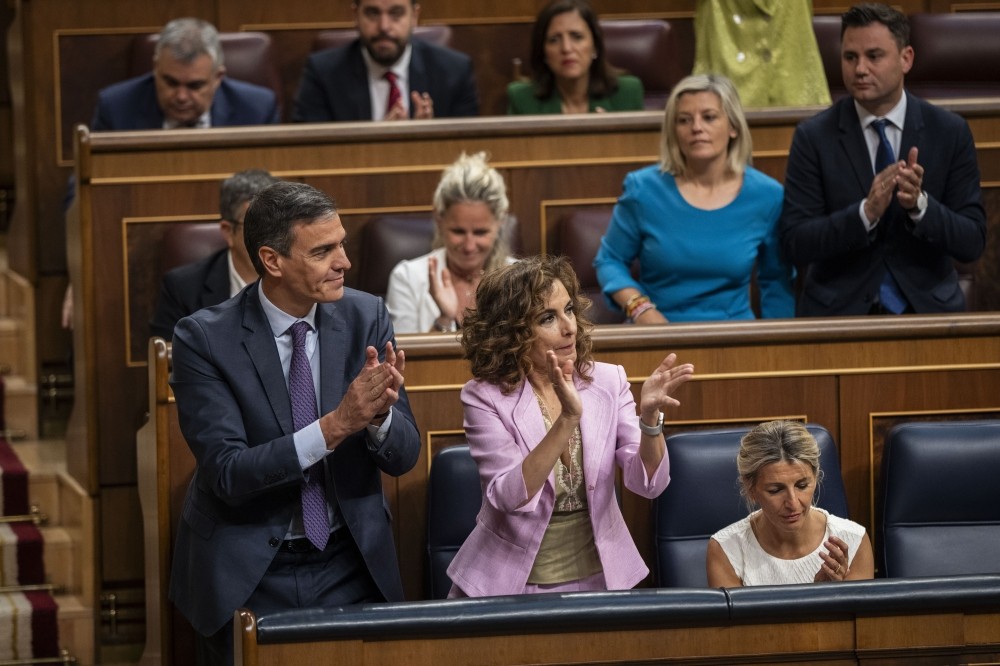30/05/2024
30/05/2024

MADRID. May 30, (AP): More than six years since Catalonia’s separatist movement took Spain to the brink of rupture, the nation’s lawmakers gave their final approval Thursday to a contentious amnesty for hundreds of secessionists in hopes of putting a definitive end to the traumatic episode.
The legislation was backed in parliament's lower house by Spain’s left-wing coalition government, two Catalan separatist parties and other smaller parties. It passed by a vote of 177-172, with the conservative Popular Party and far-right Vox opposing it.
The amnesty could benefit former Catalan regional President Carles Puigdemont, who is a fugitive from Spanish law in Belgium after fleeing Spain following the failed October 2017 breakaway bid that he led. It should also help hundreds more, including former government officials in Barcelona, average citizens who participated in the secession attempt or protests, and some police officers involved in the crackdown on an illegal independence referendum held by Puigdemont’s government.
The passing of the amnesty law, however, doesn't immediately clear up the legal mess of the separatists.
The law is likely to face legal challenges and will be reviewed by higher courts. It also must be applied by courts on a case-by-case basis. There are experts who question its constitutionality, since they say it would create inequality between Spanish citizens by favoring some over others.
Since taking power in 2018, Spanish Prime Minister Pedro Sánchez has focused on reducing tensions in northeast Catalonia, and he argues that the amnesty is key to culminating that process.
But the amnesty was also a political necessity for Sánchez, who agreed to the act of pardon when he needed the support of separatist lawmakers in Madrid to form a new national government in November. It was initially approved in March by the parliament's lower house, called Congreso de los Diputados.


